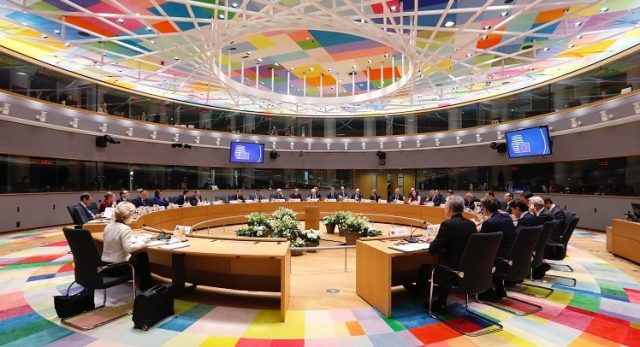
ECR is warning time after time that the current EU economic policy is proving wrong. The responsibility for the failure is typically assigned to the Von der Leyen Commission and to a European Parliament dominated by the left. Now the Directorate-General for Internal Policies in the European Parliament has published a study that points to the role played by the Council of the European Union.
In the wake of the pandemic and the energy crisis, the Council has used Article 122 of the Treaty on the Functioning of the European Union (TFEU) in order to establish the Next Generation EU funds (NGEU) and to respond to the full-scale invasion of Ukraine by Russia.
Such executive recourse, previewed in a Treaty chapter dedicated to economic policy, sidelines the European Parliament, as if the Council were convinced of the MEPs’ inability to cope with urgent or important problems related to the economy.
In the past, the Council had already used the same mechanism to correct the Common Agricultural Policy (CAP) in 1969, to launch response measures to the 1970’s energy crisis, and to react to the eurocrisis in 2010, with the establishment of the European Financial Stability Mechanism.
Article 122(1) TFEU allows the Council to adopt “the measures appropriate to the economic situation”. Furthermore, the clause particularly refers to the case where “severe difficulties arise in the supply of certain products, notably in the area of energy”. On the other hand, Article 122(2) allows the Council to grant Union financial assistance to a Member State in case of natural disasters or exceptional occurrences beyond its control.
In order to tackle the economic downturn following the COVID-pandemic, the Council used Article 122 TFEU to adopt the so-called EU Recovery Instrument (EURI), whose best-known feature is the Recovery and Resilience Facility (RRF). The stated aim of EURI was to provide financial support to the Member States in order to prevent a further deterioration of their economy, employment and social cohesion, and to boost a sustainable and resilient recovery of economy activity.
The unprecedented size of monetary creation through RRF has been originally blamed for the continuous inflation that we are now suffering, and which has been increased largely due to the conflict with Russia.
Afterwards, the Council reused Article 122(1) TFEU in order to adopt the Regulation on the coordinated demand-reduction measures for gas (Gas Demand-Reduction Regulation) and the Regulation on an emergency intervention to address high energy prices (Emergency Intervention Regulation), both of them aimed to tackle the energy crisis following Russia’s full-scale invasion of Ukraine.
The Gas Demand-Reduction Regulation instructs the Member States to voluntarily reduce gas consumption and creates a mechanism allowing the Council to declare a Union alert following which the Member States would be obliged to reduce gas consumption.
The Emergency Intervention Regulation prescribes further demand-reduction measures for electricity, a cap on market revenues for electricity producers, a temporary solidarity contribution to be paid by fossil fuel companies, and how the revenue from the cap and the solidarity contribution is to be distributed and/or spent.
The purpose of the Council was to ensure sufficient supply of gas and electricity, as well as to mitigate the rise in prices for both. To what extent this has been achieved the current inflation tells ostensibly. Poland has argued against the legal basis of the Gas Demand-Reduction Regulation in front of the Court of Justice of the European Union, while energy companies have challenged the Emergency Intervention Regulation.
The study recognises that “Member States remain the primary actors responsible for economic policy”, according to Article 2(3) and Article 5(1) TFEU. They are to coordinate their policies within the Council – which does not mean that the Council should harmonise the economic policies of the Member States.
Let the Member States act and we shall probably have less questioning about which of the three EU political institutions are to be held responsible for the increasing and now rather permanent mess on the continent.
Source of image: Access Info Europe



 Subscribe
Subscribe